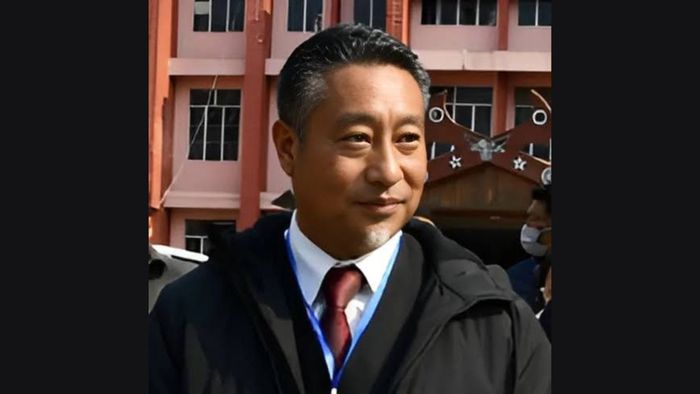Nagaland MLA calls for overhaul of tribal reservation system to help 'voiceless' communities
Tseilhoutuo Rhutso, MLA representing 9th Kohima Town constituency, used his zero hour speech in the assembly to highlight how current job and technical reservation policies are missing their intended beneficiaries across both Advanced Tribes and Backward Tribes.

- Sep 04, 2025,
- Updated Sep 04, 2025, 4:09 PM IST
A legislator from Nagaland's capital has raised alarm over the failure of the state's reservation policies to reach the most disadvantaged sections of society, calling for urgent reforms to ensure benefits don't remain concentrated among the privileged.
Tseilhoutuo Rhutso, MLA representing the 9th Kohima Town constituency, used his zero-hour speech in the assembly to highlight how current job and technical reservation policies are missing their intended beneficiaries across both the Advanced Tribes and Backward Tribes.
The MLA presented stark statistics showing that 70-80% of Advanced Tribe members and 10-20 per cent of Backward Tribe members already possess the resources and advantages for comfortable lives, forming what he termed the "creamy layer" of Naga society. Meanwhile, he said, 20-30% of Advanced Tribes and 80-90 per cent of Backward Tribes struggle to compete due to educational disadvantages and lack of exposure.
"These voiceless and underprivileged Naga brothers and sisters are suffering silently," Rhutso told the assembly, emphasising the responsibility of advantaged groups to show empathy and avoid claiming benefits meant for the truly disadvantaged.
The legislator pointed to a troubling pattern emerging after 48 years of Backward Tribe reservations. While 60-63 per cent of government posts are allocated to the general category, these positions are being filled by well-off sections of Advanced Tribes rather than reaching disadvantaged AT members. Similarly, the 37 per cent reservation for Backward Tribes is not benefiting the 80-90 per cent of BT members who face genuine socio-economic challenges.
Rhutso proposed restructuring the system into two clear categories: a General Category for well-off sections from both tribal groups, and a Reservation Category specifically for underprivileged members across all tribes. He suggested implementing strict criteria to distinguish between these groups and limiting reservation benefits to one opportunity per candidate.
"When we are trying to remove the creamy layer from reservation quotas, why should others be allowed to get reservation facilities two or three times?" he questioned.
The MLA framed his proposal within the context of achieving "Viksit Nagaland" by 2047, arguing that a 50-50 split between general and reserved categories could help bridge the employment gap between advantaged and disadvantaged communities within the next 22 years.